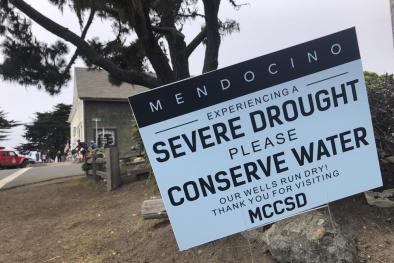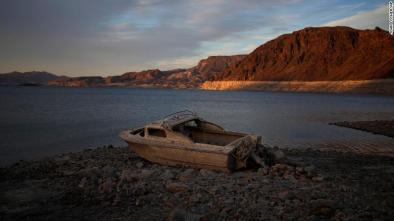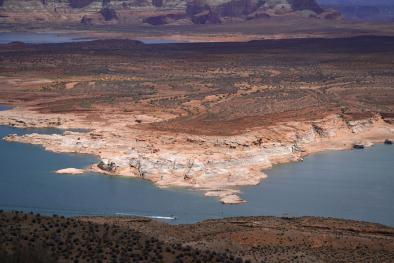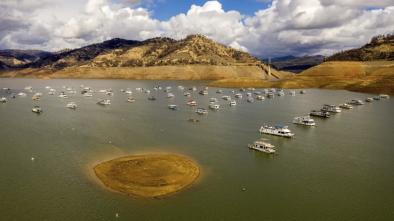Science Source
Evidence that Recent Warming is Reducing Upper Colorado River Flows
- States that the upper Colorado River basin (UCRB) is one of the primary sources of water for the western United States, and increasing temperatures likely will elevate the risk of reduced water supply in the basin
- States that although variability in water-year precipitation explains more of the variability in water-year UCRB streamflow than water-year UCRB temperature, since the late 1980s, increases in temperature in the UCRB have caused a substantial reduction in UCRB runoff efficiency (the ratio of streamflow to precipitation)
- Finds that these reductions in flow because of increasing temperatures are the largest documented temperature-related reductions since record keeping began
- Finds that increases in UCRB temperature over the past three decades have resulted in a mean UCRB water-year streamflow departure of −1306 million m3 (or −7% of mean water-year streamflow)
- Finds, in addition, that warm-season (April through September) temperature has had a larger effect on variability in water-year UCRB streamflow than the cool-season (October through March) temperature
- Holds that the greater contribution of warm-season temperature, relative to cool-season temperature, to variability of UCRB flow suggests that evaporation or snowmelt, rather than changes from snow to rain during the cool season, has driven recent reductions in UCRB flow
- Expects that as warming continues, the negative effects of temperature on water-year UCRB streamflow will become more evident and problematic
Related Content
Headline

May 26, 2022 | AP
Californians could see mandatory water cuts amid drought
Headline

May 26, 2022 | CNN
Previously sunken boats are emerging at Lake Mead as water disappears
Headline

Apr 20, 2022 | Colorado Public Radio
Colorado River named the most endangered in the U.S. by conservation group
Headline

Oct 26, 2021 | Los Angeles Times
Record rains transform a parched California, but ending drought remains elusive


